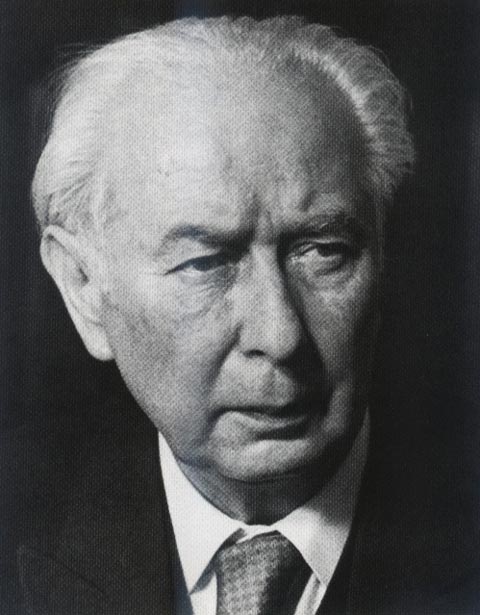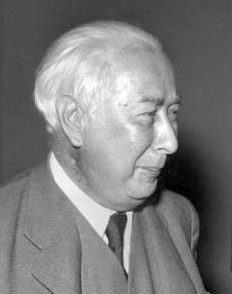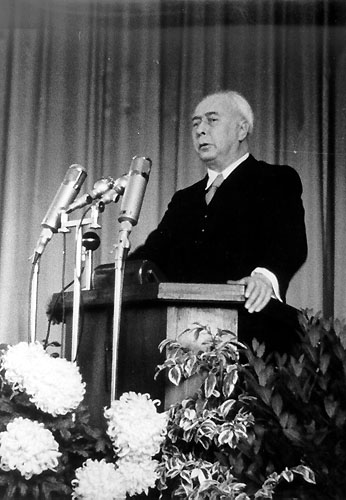<Back to Index>
- Musicologist Alan Lomax, 1915
- Composer Franz Peter Schubert, 1797
- President of the Federal Republic of Germany Theodor Heuss, 1884
PAGE SPONSOR



Theodor Heuss (31 January 1884 – 12 December 1963) was a German politician and President of the Federal Republic of Germany from 1949 to 1959.
Heuss was born in Brackenheim, near Heilbronn. He studied art history and state studies in Munich and Berlin. He received his doctorate in 1905 in Munich. In 1908 he married Elly Heuss-Knapp (1881 - 1952), with whom he had a son. After his studies he worked as a political journalist and presided over the magazine Die Hilfe ("The Help") in Berlin, from 1905 until 1912. From 1912 to 1918 he was editor in chief of the Neckarzeitung (Neckar Newspaper) in Heilbronn. In Berlin, he worked as editor for the weekly newsletter Deutsche Politik ("German Politics"). In 1910 he joined the Progressive People's Party (Fortschrittliche Volkspartei), in which he was engaged until 1918. Between 1923 and 1926 he published the magazine Die Deutsche Nation ("The German Nation"). Heuss became a member of the German Democratic Party (Deutsche Demokratische Partei, DDP), the political heir of the Fortschrittliche Volkspartei, in 1918 and was a member of parliament in the Reichstag from 1924 to 1928 and from 1930 to 1933.
In 1933, along with his fellow DDP parliamentarians, Heuss voted in favour of the Enabling Act (Ermächtigungsgesetz) against his personal attitude but subordinating to party discipline, granting Adolf Hitler quasi-dictatorial powers. Following the end of his term in the Reichstag when Germany became a one-party state, he returned to private life. During the Third Reich he stayed in contact with a network of liberals, leading to contacts with the German resistance towards the end of the war, but he was not an active resister.
After World War II Heuss was the first Minister of Culture in Baden-Württemberg. In 1946 and 1947 he taught history at the Technische Hochschule (Institute of Technology) Stuttgart. As co-founder of the Democratic People's Party (Demokratische Volkspartei), which is now the Free Democratic Party of Germany's regional branch in the state of Baden-Württemberg, he was a member of the Württemberg-Baden state parliament from 1946 to 1949. In 1948, Heuss was named honorary professor (which is a superior title in Germany) at the Technische Hochschule Stuttgart. In December 1948, he was elected head of West German and Berlin sections of the newly founded Free Democratic Party of Germany (Freie Demokratische Partei). He advocated uniting all the liberal parties in the Western occupation zones, overcoming the split between right liberals and left liberals that existed in the Weimar Republic. In 1948 he was a member of the Parliamentary Council (Parlamentarischer Rat) with considerable influence on the Grundgesetz, the constitution of the Federal Republic of Germany.
After being elected to the first German Bundestag, he relinquished his parliamentary mandate in September 1949, when he was elected President by the Federal Assembly (Bundesversammlung) defeating the Social Democrat leader Kurt Schumacher. By the time he was confirmed as the first democratic German president since Paul Hindenburg, he refused to be called “Excellency”, preferring instead to be called simply “Herr Heuss”. In 1954 he was re-elected with no opposition and held office until September 1959. He declined a third term in office, as this would have necessitated changing the constitution.
Heuss shaped the office of president by his non-partisan governing. As a representative of the democratic-liberal and cultural traditions of Germany, he was a symbol of confidence in the German post-war republic in the international community. His state visits contributed greatly to the increase of appreciation toward the still young Federal Republic of Germany. He was opposed to re-armament and the founding of the new West German Army in 1955, but had no power to stop it. His ironic speech at the swearing in of the first new soldiers, "Nun siegt mal schön!" ("Happy war-winning!"), is well remembered.
In 1959 Heuss was awarded the prestigious Peace Prize of the German Book Trade (Friedenspreis des Deutschen Buchhandels).
In 1963, he died in Stuttgart. Since 1964, the Theodor Heuss Prize has been awarded for exemplary democratic disposition. Heuss's former residence is now open to the public as the Theodor-Heuss-Haus. His image appeared on one series of the two mark coin. During his time in office, his image also appeared on definitive stamps in West Germany issued between 1954 and 1960. The Airbus which is used by the President of Germany is named in his honour.